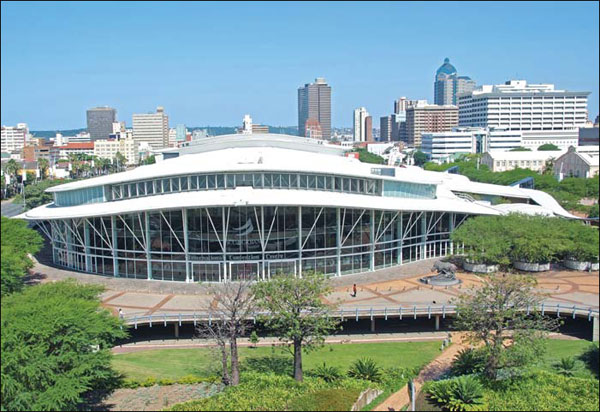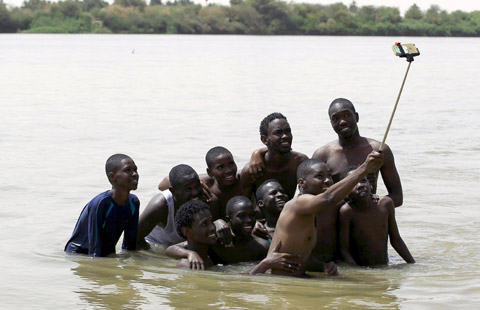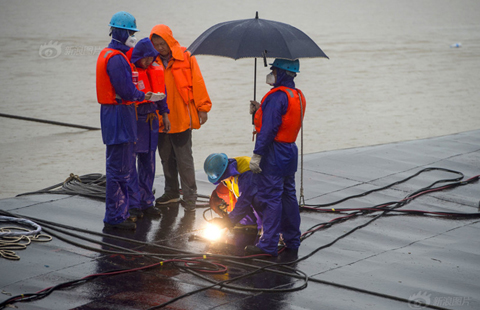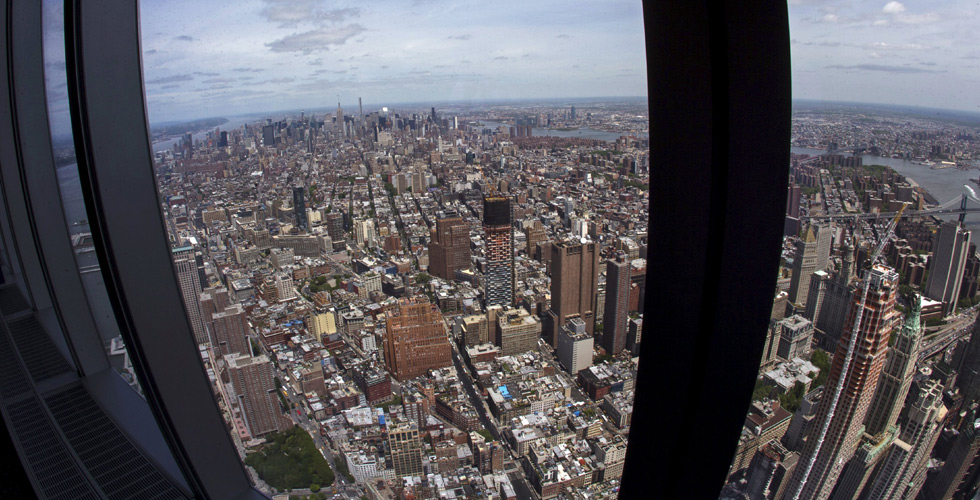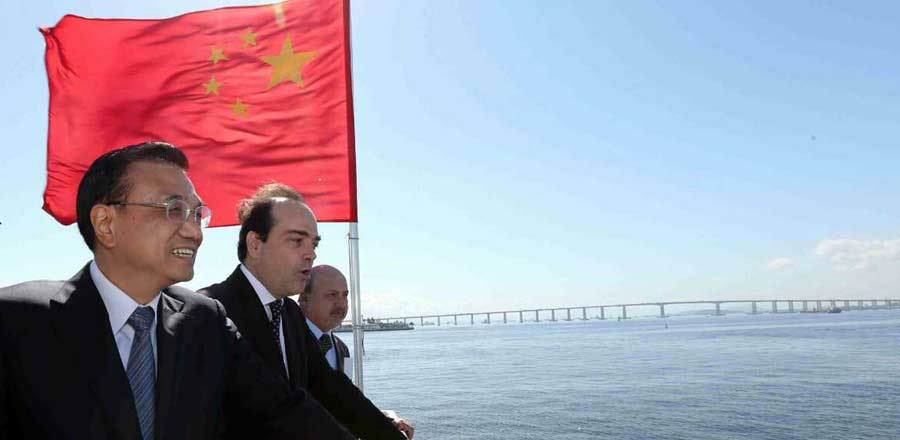Bursting with sustainable energy
Updated: 2013-03-26 08:01
(China Daily)
|
|||||||||||
|
Durban's International Convention Center, site of the BRICS annual summit. Provided to China Daily www.icc.co.za |
Resource-rich South Africa charts a way forward in long-term energy management
A reliable energy supply is key for an emerging economy like South Africa and there are a number of companies and organizations ensuring businesses, homes, industries, and public buildings are therefore being given the power to thrive.
Minister of Energy, Elizabeth Dipuo Peters, is keen to harness Chinese support to ensure South Africa reaches its energy potential, as well as securing diverse energies are available in sustainable quantities and at affordable prices. The key, she says, is to overcome the challenges, something the government is taking very seriously.
"We currently have three major plants under construction by Eskom, the country's public electricity company, and an integrated resource plan that lays out our energy supply needs. It is important we understand that our economy is energy intensive. To be able to address unemployment, we need the economy to grow so we need affordable energy.
"South Africa was key to the decisions that led to the Copenhagen accord and we are looking at how we can reduce our carbon footprint."
The integrated resource plan is, Minister Peters explained, an infrastructure development plan for power generation and transmission, and the government is also investing through the distribution asset management of the electricity value chain.
"The energy sector is key to the president's infrastructure commission which makes sure we have enough supply of liquid fuels in the petroleum and energy sectors," she says.
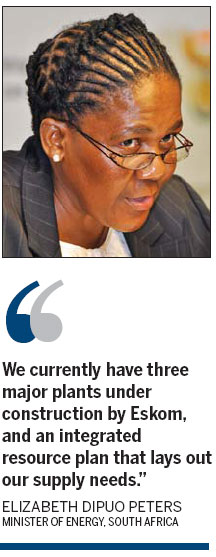
"Most of the companies in the renewable energy segment, particularly solar power generation, are actually based in China, and there are a number of Chinese companies starting work in the electricity sector and in the broader South Africa energy sector. There is room for more investment. In the petroleum sector, Sinopec has signed an agreement with PetroSA, which shows how the relationship can be translated into concrete partnerships."
Many Chinese companies are already indicating a wish to use South Africa as a base for the activities within the wider region of the Southern African Development Community.
"At a political level, there has been a lot of engagement in the liquid fuels and electricity sectors in particular, and there is potential for nuclear and renewable energies as well. Our relationship with China is massive at both an economic and a political level," the minister says.
The National Energy Regulator of South Africa is the first point of contact for serious investors wishing to enter the energy market, and has reduced red tape considerably.
"The government has gone all out to attract independent power producers and utilized the requirement for renewable energy megawatts in our system in order to secure this participation," says Phindile Nzimande, NERSA's CEO.
"As far as we can see, these partnerships will extend beyond the renewable energy sector because we will be able to create confidence within the private sector that there is a clear financial and regulatory framework in which they can come and add the necessary megawatts into the grid. I think overall we are on track., Nzimande says.
NERSA has already secured the participation of 28 mostly foreign IPPs who are investing a combined amount of 47 billion rand ($5.2 billion) into the grid.
"We operate in a very transparent manner and consult on decisions before taking them. We have a pre-application procedure that allows prospective investors to sit down with us and understand how the licensing process works, an empowering lever for investors to effectively enter the South African energy market," Nzimande says. "We have taken consistent decisions and are highly encouraged by the fact there has been financial closure on the 28 independent power producers. There is a very solid regulatory framework in our country and investors understand local requirements."
Efficiency drive
While NERSA makes investing in South Africa's energy sector easier, the South African National Energy Development Institute is working hard to reduce the country's carbon emissions and researching cleaner and greener alternatives.
Highly innovative and with a dedicated and skilled professional team, SANEDI is open to knowledge/technology exchanges, partnerships and investment from its counterparts in Asia and around the world.
As Kadri Ikevinj Nassiep, SANEDI's CEO knows, energy efficiency is the key to a sustainable energy future, and he and his team are working hard to help the country reduce demand.
"We are not experiencing a major crisis in the supply as it has been managed very well by Eskom," he said. "However, we have a responsibility to use our power wisely. We have run a power alert feature on TV, but the big push is to save energy in the public buildings - we have more than 120,000 government buildings alone - and there is huge potential to do that. We focus strongly on the development side of energy in terms of R&D, job creation and how to help industry and commerce implement energy efficient solutions."
Nassiep has already spoken to Chinese companies about the possibility of setting up a test facility for solar technologies. "Moving forward, we would also like to migrate manufacturing. It would be nice to partner with the Chinese in this area and for them to possibly set up a facility. It would be useful to have a relationship where we can set up a facility here and the product goes out to China. It would be useful to find markets in China for some research we are doing such as carbon capturing, mineral sequestration, and algae research.
"On a global level, we can show BRICS countries how they can limit their emissions at a time of important global pressure. We need to look at the finished products that are energy linked and aim to reduce or remove import duties on energy products within the BRICS so that we can create market opportunities for these kinds of products. In essence we would like to create a platform that can allow for some of our products to be exported in the future, as well as knowledge transfer in the extraction of things such as shale gas which could have a huge impact for South Africa in the future."
Nuclear solutions

Meanwhile, with nuclear energy widely regarded as the leading alternative energy source, an expansion plan is underway in South Africa to deliver a modern nuclear power generation fleet which will ensure a low-cost, low-carbon electricity supply for decades to come. The country, rich in uranium reserves, currently boasts two nuclear reactors, generating 5 percent of its electricity, the first of which began operating in 1984. The government is firmly committed to generating further 9,600 megawatts within the next decade.
While not responsible for generating electricity from nuclear sources, the South African Nuclear Energy Corp Ltd is gaining a reputation as a champion in developing medical applications of nuclear technology.
"NECSA is known for producing excellent nuclear products," says PhumzileTshelane, the organization's CEO. "We produce medical isotopes to diagnose and even treat cancer and the market out there is huge. NECSA can assist in terms of catching this disease before it becomes destructive."
InFocus provided the story
(China Daily 03/26/2013 page20)
Hot Topics
MERS
Editor's Picks

|

|
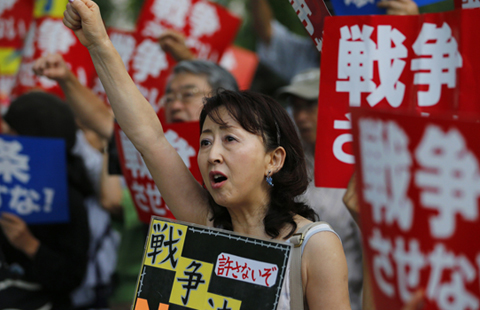
|

|

|

|
